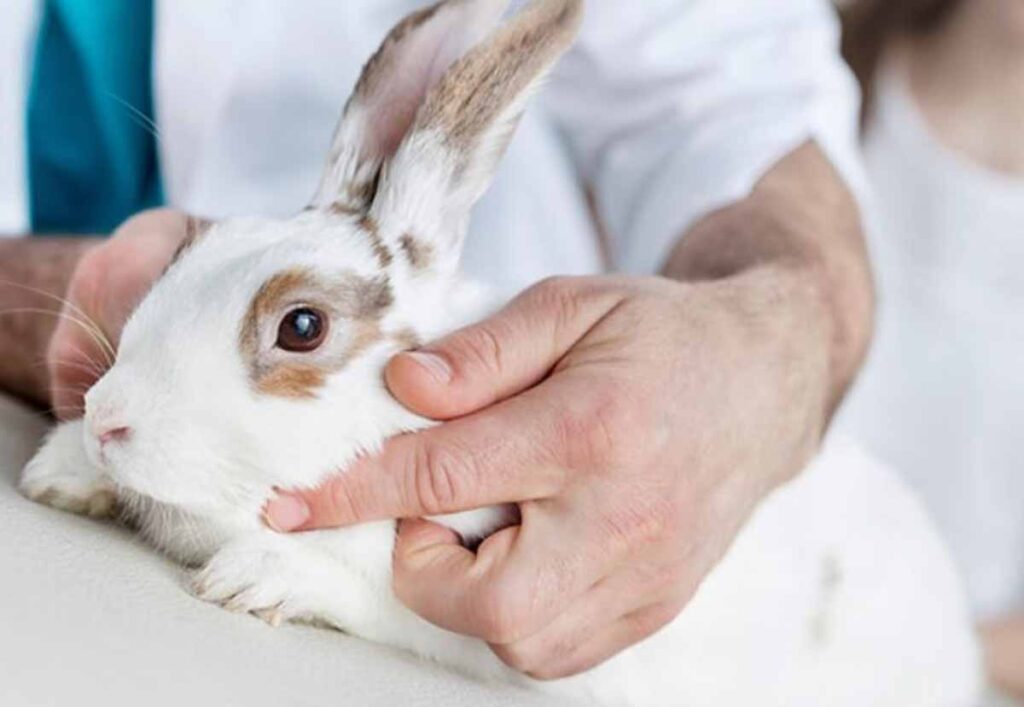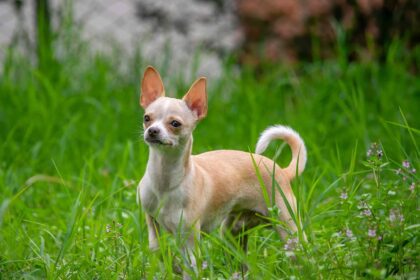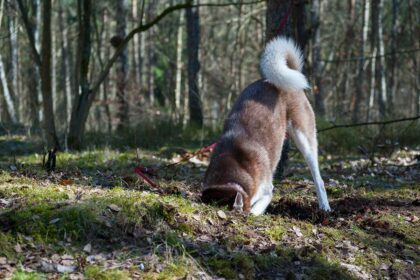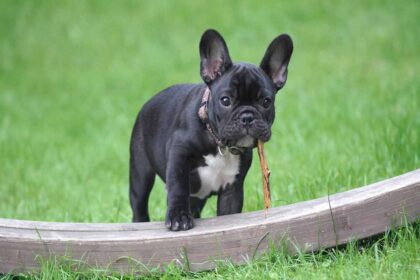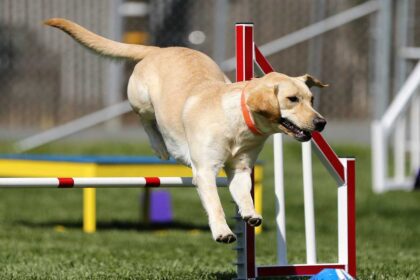Rabbits are adorable creatures with surprisingly complex digestive systems. Unlike us, they rely on special gut bacteria to break down their food. This friendly bacteria ferments fiber, which is why hay is so crucial for their diet. As this breakdown happens in the rabbit stomach, it’s natural to hear some gurgling noises coming from their bellies. These sounds are often a normal part of a healthy rabbit’s digestion and similar to our own stomach rumbling after a meal.
However, if the gurgling becomes excessive and frequent, or accompanied by other symptoms, it could indicate a digestive issue. Let’s explore the reasons behind gurgling and how to tell the difference between a happy stomach and a stomach in trouble.
The Rabbit’s Digestion Process
Rabbits have a complex digestive system built for extracting nutrients from tough plant material. Unlike humans, they’re hindgut fermenters, meaning the real breakdown of food happens in the latter part. They start by thoroughly chewing their food, mostly hay and grass. This breaks it down for easier digestion and processing.
The food then travels to the stomach, and this is where it encounters some acid but minimal nutrient absorption. Here’s the twist the stomach releases a special mucus to protect the food from strong acid. And this mix then journeys to the small intestine and this is where some nutrients are absorbed. However, the real magic happens further down in the large intestine, specifically in a pouch called the cecum. Therefore, this cecum acts like a fermentation vat and teeming with bacteria that break down the tough cellulose fibers in plants.
These bacteria also create essential vitamins and fatty acids the rabbit absorbs. But there’s another surprise. Not all the goodness is absorbed in the cecum. Rabbits produce special soft droppings called cecotrophs, packed with nutrients from the bacteria. These aren’t waste, but rather a second course. And rabbits actually eat these cecotrophs at night, allowing them to extract a second round of essential vitamins.
Finally, after all this processing in the rabbit, the remaining indigestible material forms the dry and round droppings we typically see. This unique system allows rabbits to thrive on a diet of low-calorie and high-fiber plants. However, stomach gurgling in rabbits can sometimes be a sign of trouble. While some gurgling noises are normal during digestion, on the other side excessive or continuous gurgling could indicate gas pain.
Why Does A Rabbit’s Stomach Gurgle?
These gurgles can happen anytime, but they’re louder when your rabbit’s stomach is empty or after they’ve had a big meal to munch on. You might also hear them during cecotroping, their special way of getting extra nutrients. Rabbits eat some of their soft droppings, which are packed with good stuff! This helps their digestion keep working smoothly.
Therefore as long as your bunny isn’t in pain, bloated, or acting strange, those gurgles are just their insides doing their job. They’re a sign of a healthy digestive system, and something rabbit owners should be familiar with as part of keeping their furry friend happy and healthy.
Abnormal Rabbit Stomach Gurgling
While some gurgling is normal, frequent, loud, or unusual noises might indicate digestive trouble in your rabbit. Therefore, here are some things that could cause abnormal gurgling:
Stomach Gurgling of Gas-Related Pains
Rabbits, just like us, can experience gas due to various factors. Their delicate digestive system can be upset by dietary issues like too much protein or not enough fiber also due to sudden changes in their diet.
While those yummy fruits and veggies are great treats, overindulging can lead to gas pains. Stress can also take a toll on a bunny’s digestion, contributing to discomfort. In some cases, gas might be a sign of a more serious problem like a blockage in the intestines.
Stomach Gugling for Hairball Issues
Rabbits groom themselves constantly, and that fur can build up in their stomach. If they can’t pass it naturally, a hairball can cause a blockage and gurgling sounds.
Slow Digestion (GI Stasis)
This is a serious condition where food movement through the digestive system slows down or stops completely. In any case, it can be caused by things like stress, dental problems, or pain, and requires a vet’s attention.
Unwanted Guests
Internal parasites and worms can irritate the intestines and disrupt digestion, therefore leading to gurgling.
Bacterial Imbalance
The good bacteria in a rabbit’s gut helps with digestion. If this balance is disrupted by bad bacteria, therefore it can lead to inflammation and abnormal gurgling sounds.
Treatment For Rabbit Stomach Gurgling
Your rabbit might be experiencing some occasional gurgling noises. While this can be a normal part of their digestion and process, therefore, here are some ways to keep their gut healthy and promote smooth digestion:
Healthy Diet
Rabbits are herbivores, and their digestive system thrives on a diet rich in fiber. Make sure their primary food source is high-quality hay. And offer a variety of hays like timothy, orchard, or oat hay to keep things interesting.
And Supplement their diet with fresh, leafy greens like romaine lettuce, kale, and carrot tops. Introduce new greens slowly to avoid any tummy upsets.
Clean & Pure Water
Just like us, rabbits need clean, fresh water readily available at all times. Ensure their water bottle is functioning properly and cleaned regularly.
And Consider providing a water bowl in addition to the bottle, as some rabbits prefer to drink from bowls.
Probiotics (A Gut-Friendly Boost)
Probiotics can be helpful in supporting the healthy bacteria in your rabbit’s gut. And these beneficial bacteria aid in digestion and help prevent gas buildup.
[Important Note] Always consult your veterinarian before introducing any supplements to your rabbit’s diet. After all they can advise on the right type and dosage of probiotics specifically for your bunny.
For Abnormal Rabbit Stomach Gurgling
Occasional gurgling noises from your rabbit’s belly might not be a cause for immediate alarm. However, if the gurgling becomes frequent and loud, or is accompanied by other concerning symptoms, seek veterinary attention immediately.
Red Flags to Watch Out For
- Lethargy and lack of energy
- Loss of appetite and refusal to eat
- Grating teeth
- Hunched posture and discomfort
- Diarrhea and constipation
- Bloated and distended abdomen
Importance of a Vet Visit
Therefore these signs would indicate a more serious underlying issue like gastrointestinal (GI) stasis, a condition where digestion slows down or stops completely. Early detection and treatment are essential for having an effective result.
Potential Treatment Options at the Vet
- Diet Tune-Up: The vet might suggest tweaks to your rabbit’s meals to fix any problems causing tummy troubles.
- Medications: Depending on the issue, your rabbit might get pain meds for comfort and antibiotics to fight off infections and special meds to get their digestion back on track.
- Surgery for Serious Blockages: In rare cases with a blockage, surgery might be needed to remove it and cure it.
[Remember] Don’t wait for symptoms to worsen and spread. Consulting a veterinarian promptly is vital for your rabbit’s health and well-being and to cure them faster.
Rabbit Health and Care
Just like humans, rabbits thrive with a focus on preventative healthcare. Therefore, here’s how you can keep your bunny happy and healthy for years to come:
Fueling Their Bodies
A balanced diet rich in fiber is essential for rabbits and their health. Hay should be the cornerstone of their meals and provide essential roughage for healthy digestion and teeth wear. And combine with fresh and leafy greens and a small serving of high-quality pellets.
Keeping Active
Rabbits need daily exercise to stay physically and mentally stimulated. Provide ample space for hopping and exploring and create an exercise area with tunnels and hiding spots. And Supervised playtime outside their enclosure allows for stretching and natural foraging behaviors.
Parasite Protection
Internal and external parasites can pose a serious threat to your rabbit’s health.However, regular parasite control and following a veterinarian’s recommended schedule, is crucial.
Early Detection is Key
Annual vet checkups are vital for early detection of potential health concerns,and especially for digestive issues common in rabbits. That being said, these checkups allow your vet to monitor your rabbit’s overall health and identify any problems before they become serious and problematic.
By prioritizing preventative measures like proper diet, exercise, parasite control, and regular vet visits, you can help your rabbit live a long and healthy life. Therefore, remember no matter what, a proactive approach is the best way to ensure your furry friend stays happy and hopping for years to come.
Conclusion
Rabbit gurgling can be a normal digestive sound, but frequent or loud gurgles alongside lethargy, appetite loss, or bloating can signal trouble. And be observant and don’t hesitate to visit the vet if you’re concerned. After all early action is key for your rabbit’s health, make sure to be careful.


